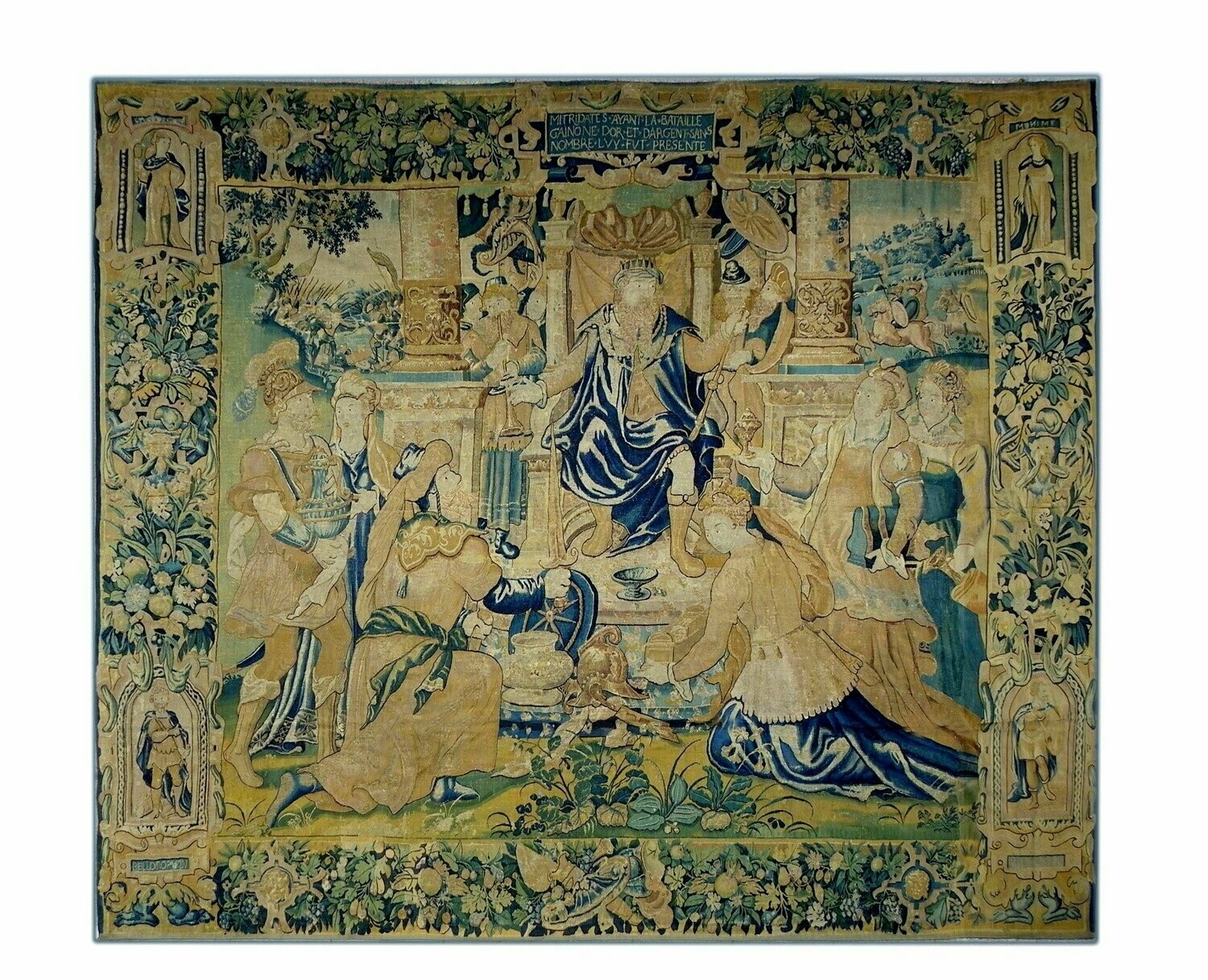Flemish Tapestry - King Pontus - Period: 17th century - Size: L396xH335
€0.00
In stock: 1 available
Product Details
Description
Reference No.: 78J/ 2429
Origin: Flanders - Oudenaarde
Period: 17th century
Provenance: Private Collection
Composition: Wool and silk
Dimension: W 3.96 x H 3.35
Le Roi Pontus, tapestry woven in wool and silk Circa 1650 - Oudenaarde.
In the upper border, the text "Mithridates Before the Battle Gaingne Dor and Dargent Sans Nombre Luy Fut Presente".
Original size and border, cleaned and lined more velcro.
MITHRIDATE VI EUPATOR (~132-~63) King of the Bridge
Born in 132 BC in the Greek city of Sinope, the capital of the Bridge, Mithridate VI Eupator spent his childhood there. He thus possessed a dual culture, Greek and Iranian, which allowed him to present himself as the defender of Greece, but justified the propaganda of the Romans, who assimilated him to the Persian invaders. Beyond these contradictory images appears an enterprising king, quick to defend his interests and exploit the weaknesses of a Rome of which he was the determined opponent, an image popularized by Racine's tragedy.
1. The beginnings of Mithridate
His father, Mithridate V Evergetus, king of the Bridge, had helped Rome to form the province of Asia. He had received a part of the Great Phrygia as his salary. But in 120 BC, he was murdered. The regency was exercised by his wife Laodice on behalf of his minor sons, Mithridate and Chrestos. The knowledge we have about the beginnings of the reign is obscured by legends of Iranian origin. It is unlikely, for example, that Mithridate was forced to hide for seven years to escape the intrigues of his guardians, but it is likely that he received away from the court the harsh education that made him an athlete of exceptional endurance.
Around 112 BC, Mithridate took power without restraint, eliminating his mother and brother: until his death, he ruled as a despot, repressing all opposition. However, he found a situation compromised by the strengthening of Roman domination: a life gift, the Great Phrygia had been taken over after the death of Evergistus, while Bithynia and Cappadocia had become clients of Rome. Mithridate therefore directed its activity towards the Pont-Euxin. Flying to the rescue of the city of Chersonesos, threatened by the Scythians, Mithridate sent successively to Crimea Diophantine and Neoptolemos who, between 110 and 90 BC, subdued the barbarian populations and brought the Greek cities of the Black Sea into Pontic Obedience.
Our house assures you the sale of a tapestry with invoice and approved expertise, well cleaned, in good condition with its fixing system. If necessary, we will inform you of the work that has been done. All our tapestries can be presented to you at your home in France and neighbouring countries before your final decision.
Save this product for later
Display prices in:
EUR



